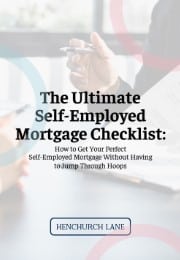Let to Buy Mortgages
- Friendly expert mortgage advisers
- We work with dozens of lenders
- Access to competitive rates
Home » Let to Buy Mortgages

Let to Buy Mortgages
Paul Holland sits down and explains everything Let to Buy mortgages
What is a Let to Buy Mortgage and how do they work?
A Let to Buy Mortgage is essentially a Remortgage on your own residential property, where you change it from a residential mortgage to a Buy to Let Mortgage, whilst simultaneously completing on a purchase mortgage for a property that you intend on living in.
It’s buying a new home, and rather than selling the home that you’re in, you change that mortgage and rent it out, once you complete the purchase of your new home.
What’s the difference between a Let to Buy and Buy to Let?
Basically a Buy to Let is the most common sense approach to buying a property to rent it out. When you’re changing your current residence to a Buy to Let, you already own it, so you’re actually letting it to buy a new property.
Who is a Let to Buy mortgage for?
You will need to own a property because you won’t be able to let it out otherwise, so it’s someone who wants to buy a new home, but keep their own property.
What criteria do I need to meet for a Let to Buy Mortgage?
When you change it from your residential mortgage to a Let to Buy mortgage you need to have 25% equity. You’re not going to be able to Remortgage your current home to a Let to Buy mortgage if you’ve got 5% equity, because that doesn’t fit the criteria.
Generally speaking, the rest of it is very similar to a Buy to Let purchase. The onward purchase mortgage that you apply for has a very similar criteria to a Standard Residential mortgage for a First Time Buyer or Home Mover.
How much deposit do I need for a Let to Buy and how much can I borrow?
You need 25% equity. If you’ve got much more than that and generally speaking this really tends to people who do have much more than that, you can use the surplus as a deposit for the onward purchase.
People who’ve got a small mortgage and a much higher value property fit the bill for Remortgage perfectly, and won’t need to put any of their own funds towards the purchase from their own pocket. They can accomplish property investment status with none of their own money, so that’s when it works really well.
The maximum loan that you can achieve on your existing residential home is going to be subject to the potential rental that you’ll yield from that property, rather than your personal affordability. Subject to a maximum of a 75% Loan to Value, anything up to the value determined by how much rental income you’re going to get each month.
What are the pros and cons of a Let to Buy Mortgage?
One of the pros that I mentioned is that you can achieve landlord status and invest in property other than your main residence in the same transaction. You get to keep your current home, and some people have a real connection to their existing home, so that’s a really nice incentive for people. Another positive is that you don’t have a chain. You become almost chain-free as a buyer, so your position as a purchaser is improved.
In terms of negatives, you’re always going to be paying a surcharge on Stamp Duty if you own an additional property at the end of the transaction. If you own one more than you did to begin with, generally speaking there will be a 3% surcharge on that property price added to your stamp duty bill. Another one is that not all lenders actually offer it. There are only a handful of lenders that will allow it, so it doesn’t give you as broad a spectrum as it would by going down the conventional Buy to Let route.
Are there any alternatives to Let to Buy?
There are options generally speaking. It’s not really one that you should be proactively seeking unless you have to because they’re very expensive products, but there are bridging options out there for people. They are a little bit more complex and you’d have to discuss it on a case-by-case basis.
How can a broker help?
You need to secure not only a broker, but a broker that absolutely knows what they’re talking about. It’s a really complex situation that can end up costing you a lot of money if you get it wrong.
We deal with a lot of property investors, Self-Employed people especially, that results in a high volume of Let to Buy applications. It’s something that we’re really slick on, and if it’s something that you need to discuss to see if it’s feasible for you and what your intentions are, get in touch.
Your property may be repossessed if you do not keep up with your mortgage repayments.
Why Us?
- Friendly, expert mortgage advisers
- We work with dozens of lenders
- Access to competitive rates

